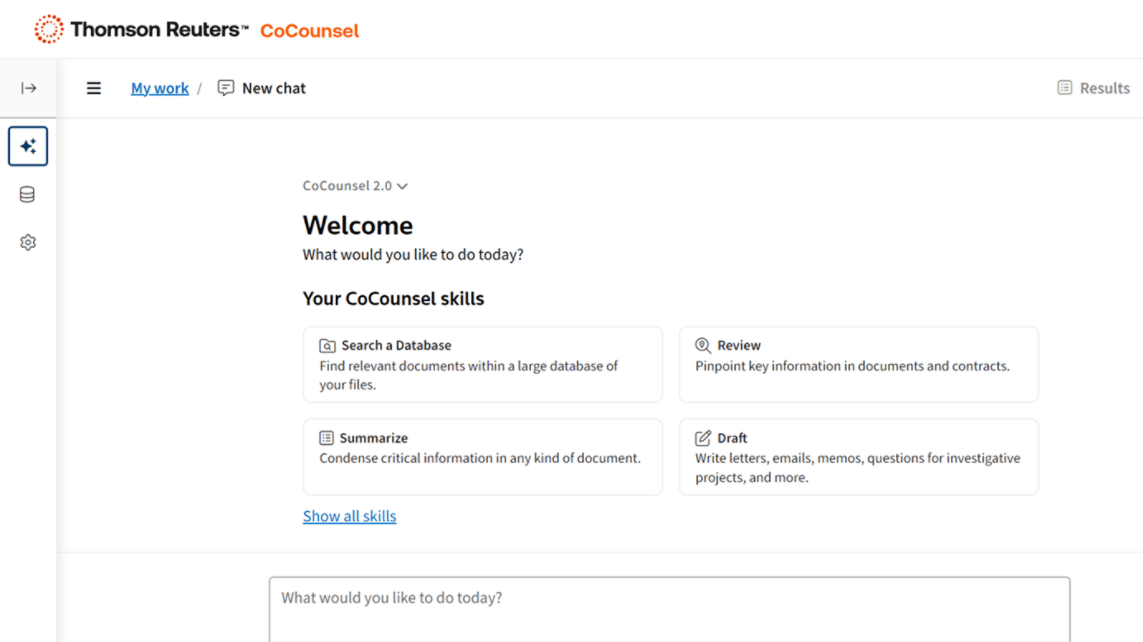In law firms, paralegals and legal assistants can be an important asset to attorneys
There is no shortage of important administrative and clerical tasks to be done at a law firm and having the right people to handle those tasks is critical in ensuring the smooth and successful operation of a law office. Like any other business enterprise, the success of the firm will be inextricably linked to the effective execution of each segment of a law firm’s day-to-day operations. For this reason, it is critical to have the right support staff in place to handle this work.
Legal assistants, sometimes called litigation assistants, are often tasked with filling these supporting roles. Legal assistants do a job separate from that of a paralegal although the two do sometimes share some overlaps in responsibilities. In general, legal assistants do more administrative and back-office work, while paralegals have a heavier research role.
Below, we will take an in-depth look at exactly what a legal assistant does, some of the educational and training considerations associated with the role, and what sorts of expectations legal assistants should have with respect to wages. First, let’s start by defining the job more explicitly.
Jump to ↓
| What is a legal assistant? |
| What to consider when hiring a legal assistant? |
| Legal assistant vs. paralegal |
| Summary |

CoCounsel
Bringing together generative AI, trusted content and expert insights for assistant tasks
Meet your AI assistant ↗What is a legal assistant?
A legal assistant is a professional who provides administrative and clerical support to lawyers and other legal professionals. Legal assistants may perform tasks such as managing documents and files, scheduling appointments and court dates, and communicating with clients and other parties involved in legal matters. Legal assistants may also assist with legal research and drafting legal documents, but they do not provide legal advice or represent clients in court. Legal assistants typically have a certificate or degree in legal studies or a related field and may specialize in a particular area of law.
Broadly speaking, legal assistants’ work is geared toward organizational and administrative tasks in support of the day-to-day operations of a law firm. Some of the tasks a legal assistant might be asked to do include answering phone calls, setting up appointments between partners, associates, clients, and other relevant parties, and preparing documents necessary for certain proceedings.
What does a legal assistant do?
Individuals with strong organizational skills, a detail-oriented personality, and the ability to clearly and effectively communicate internally and with prospective clients are critical for those filling the role. Oftentimes, legal assistants will need to multi-task, as their responsibility tree is fairly wide. Having a keen ability to focus on several things at once is also helpful for those in the role. Law firms often have a wide range of activities taking place on a given day; clients come and go, phone calls will need to be answered, copies of important documents must be made, and all of these things can be happening at once. A good legal assistant will not only be able to stay above water during these hectic times, but they will thrive in them.
What types of education/certifications does a legal assistant require?
There are no set and sanctioned educational requirements to become a legal assistant. In fact, as ParalegalEDU.org notes, many law firms will train their legal assistants on the job. That training goes a long way toward ensuring the success of a legal assistant. However, there are some higher-education avenues one might consider should one be interested in becoming a legal assistant. These courses are offered in various trade and career schools and junior colleges, notes the informational resource, and those courses can be helpful in providing the foundation for a career in legal support.
“You’ll be expected to have a solid understanding of basic computer programs, office procedures, and legal terminology, so completing a course of study in this field is a smart move,” it adds. “Many legal assistants also get their foot in the door by securing an internship with a law firm.”
The National Association for Legal Support Professionals offers both an Accredited Legal Professional (ALP) Exam, which allows individuals to demonstrate competency and preparedness in the field, as well as a
Certified Legal Professional (CLP/PLS) Exam is designed for “lawyer’s assistants who want to be identified as exceptional.”
The ALP exam is taken in three parts and addresses a legal assistant’s ability to perform business communication-related tasks, proficiency with office calendars and records, an understanding of computer terminology, office ethics and protocols, and an understanding of legal terminology.
Additionally, for those with at least three years of experience in the field, the CLP/PLS Exam allows one to demonstrate a mastery of these skills, in addition to:
- “The ability to interact on a professional level with attorneys, clients, and other support staff;
- The discipline to assume responsibility and exercise initiative and judgment; and,
- A working knowledge of procedural law, the law library, and how to prepare legal documents.”
How much do legal assistants make?
Job hunters looking to find work as a legal assistant can expect, at present, an average salary of $50,000, per Indeed. As an hourly wage, litigation assistants can expect roughly $19.34, with the cities of New York, Los Angeles, and Dallas offering the highest average wages for legal assistants.
Breaking down those wages a little further, for legal assistants working between one and two years that hourly wage averages just under $18. For those with more experience—between six and nine years in the role—that hourly wage jumps to $20.51. And for those with more than 10 years’ worth of experience, the hourly wage averages around $23.39.
According to information from the BLS, the combined paralegal and legal assistant professions are expected to grow much faster than average in the ten-year period ending in 2031. In that time period, notes BLS, the space is expected to expand by around 14%. Additionally, data indicated there are approximately 45,800 openings each year in these areas.
What to consider when hiring a legal assistant
Employers looking to add a legal assistant to their payroll have a lot of factors to consider. Candidates must possess the skills mentioned above, but should also portray an active disposition, good interpersonal skills, and exhibit a willingness to work in a team setting.
According to the informational job resource LinkedIn, there are several key questions interviewers should focus on during the hiring process. Among the topics, those questions should cover include typing speed and accuracy—50 to 80 words each minute is a good benchmark—as well as handling client confidentiality and unhappy and disgruntled clients. A crystal clear understanding of how vital confidentiality is in a law office and a professional attitude are important characteristics to look for here, notes the job site.
Another great question to ask: “Which areas of law are you most interested in?”
“Legal assistants are regularly tasked with performing legal research, preparing legal documents, and attending discovery, closings, negotiations, and court hearings. As such, having a genuine interest in the law is extremely beneficial for success,” reads the LinkedIn guide. “This question can help you gauge a candidate’s interest in the field, and whether they’ll be interested in working at your company in the long-term.”
Resume tips for candidates
As is the case with any resume, it is imperative it look neat, clean, and professional. For those hoping to win over a partner or associate hiring at a law firm, these features take on an even greater importance as they exhibit some of the skills most needed to succeed as a legal assistant: careful attention to detail and strong communication.
Robert Half Talent Solutions offers some additional tips for those looking to make a good impression with their legal assistant resume. The recruiting and employment agency suggests highlighting any and all technical skills a prospective litigation assistant possesses. For example, any proficiencies with Microsoft Office software, case management software, and billing software should be front and center on the resume.
Additionally, proficiency in emerging technologies and social media are also great areas to highlight, says the employment firm. Cloud computing, for example, is rapidly becoming a major element of the legal landscape, and individuals with a strong grasp of its nuances would do well to include that information. Further still, legal assistant candidates with a basic understanding of e-Discovery, which is another rapidly expanding space in the legal industry, should definitely make note of that fact on their resumes.
“Optimizing your legal resume according to the basic expectations of most leading employers will give you a strong foundation for promoting your full range of skills and experience, which may include foreign language abilities and specialized knowledge,” adds the firm.
Legal assistant vs. paralegal
The main difference between paralegals and legal assistants is in the scope of their responsibilities.
Paralegals typically have more extensive legal education and training, and may perform tasks such as legal research, drafting legal documents, and assisting with client communication. Legal assistants, on the other hand, typically focus on administrative and clerical tasks such as managing documents and files, scheduling appointments and court dates, and communicating with clients and other parties involved in legal matters.
Additionally, the terms “paralegal” and “legal assistant” may be used interchangeably depending on the jurisdiction and the specific employer.
Often, and especially to those who do not have much exposure to the work environment of a law office, the two jobs can sound interchangeable. In fact, the two roles are still grouped together by the United States Bureau of Labor Statistics (BLS) in the agency’s reporting statistics. Further, smaller law firms that might not have the same resources as their medium- and larger counterparts might be inclined to combine the two jobs. This would allow them to use their limited personnel to handle all of the necessary administrative tasks.
However, the two jobs are, in fact, unique and distinct from one another; paralegal work, for example, often involves a fair amount of research and litigation-specific paperwork. Paralegals are also asked to prepare documents, and draft notices related to discovery proceedings, and can even interview clients. However, paralegals are not licensed to provide legal advice, nor are they licensed to practice law. As such, they cannot represent an individual in court, sign a pleading, or take down a deposition.
Further thoughts
Legal assistants are expected to have strong organizational skills, an aptitude for administrative tasks, good communication skills, and focus. There are no strict educational requirements for individuals seeking the role, but there are a number of certification courses aimed at helping sharpen the requisite skill sets needed to thrive in the role.
Legal assistants are expected to have a cursory understanding of legal procedures and the ability to keep track of the day-to-day activities taking place at a law firm. Individuals with a strong ability to multi-task and attention to detail tend to thrive in these roles.
In a rapidly expanding field, legal assistants can expect more than $19 an hour, and the best wages tend to come out of places like New York, Los Angeles, and Dallas.
Legal assistants sometimes share some responsibilities with paralegals, especially in smaller law firms, however, legal assistants generally handle administrative and day-to-day tasks compared to the more substantive tasks paralegals are asked to do such as interviewing clients, compiling evidence, and complex research.







